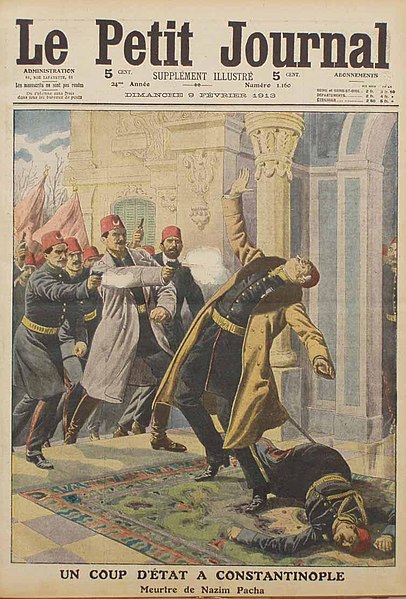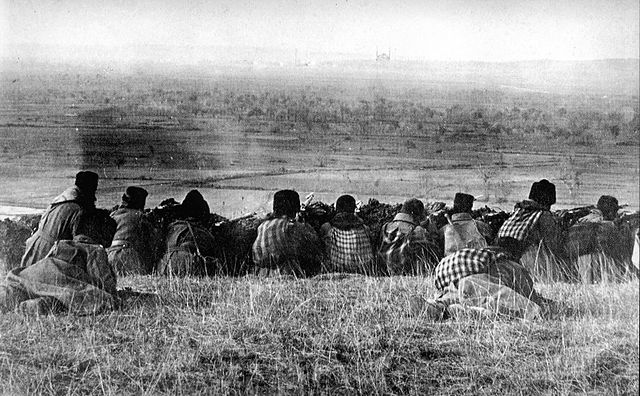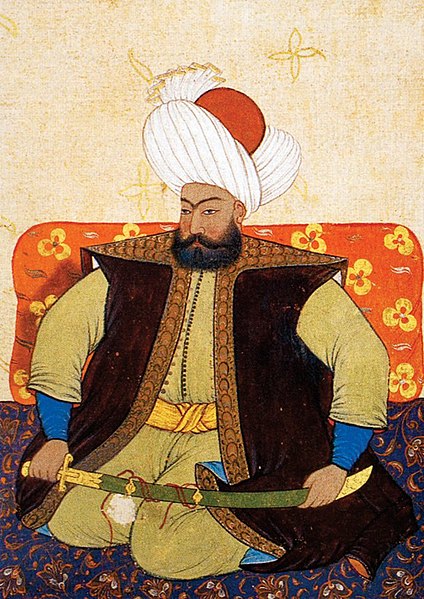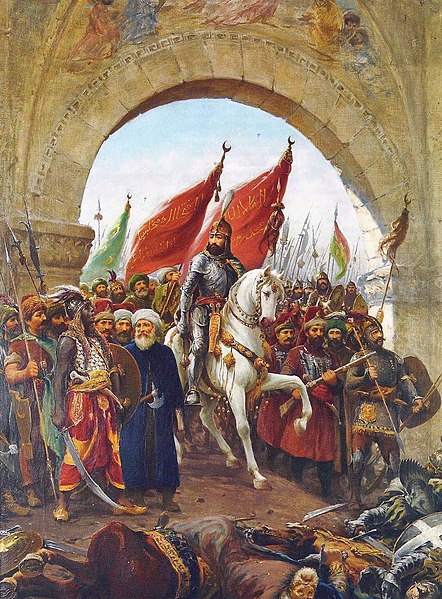The Balkan Wars were a series of two conflicts that took place in the Balkan states in 1912 and 1913. In the First Balkan War, the four Balkan states of Greece, Serbia, Montenegro and Bulgaria declared war upon the Ottoman Empire and defeated it, in the process stripping the Ottomans of their European provinces, leaving only Eastern Thrace under the Ottoman Empire's control. In the Second Balkan War, Bulgaria fought against the other four original combatants of the first war. It also faced an attack from Romania from the north. The Ottoman Empire lost the bulk of its territory in Europe. Although not involved as a combatant, Austria-Hungary became relatively weaker as a much enlarged Serbia pushed for union of the South Slavic peoples. The war set the stage for the July crisis of 1914 and thus served as a prelude to the First World War.
A Bulgarian postcard depicting the Battle of Lule Burgas.
A Punch cartoon of October 2, 1912, by English cartoonist Leonard Raven-Hill depicting Britain, France, Germany, Austria-Hungary, and Russia sitting on a lid on top of a pot marked "Balkan Troubles", satirizing the situation in the Balkans leading up to the First Balkan War
Nazım Pasha, the chief of staff of the Ottoman army, was assassinated in January 1913 by Young Turks due to his failure.
Bulgarian forces waiting to start their assault on Adrianople
The Ottoman Empire, historically and colloquially known as the Turkish Empire, was an imperial realm that spanned much of Southeast Europe, West Asia, and North Africa from the 14th to early 20th centuries; it also controlled parts of southeastern Central Europe between the early 16th and early 18th centuries.
Ottoman miniature of Osman I by Yahya Bustanzâde (18th Century)
The Battle of Nicopolis in 1396, as depicted in an Ottoman miniature from 1523
Sultan Mehmed the Conqueror's entry into Constantinople; painting by Fausto Zonaro (1854–1929)
Ottoman miniature of the Battle of Mohács in 1526








